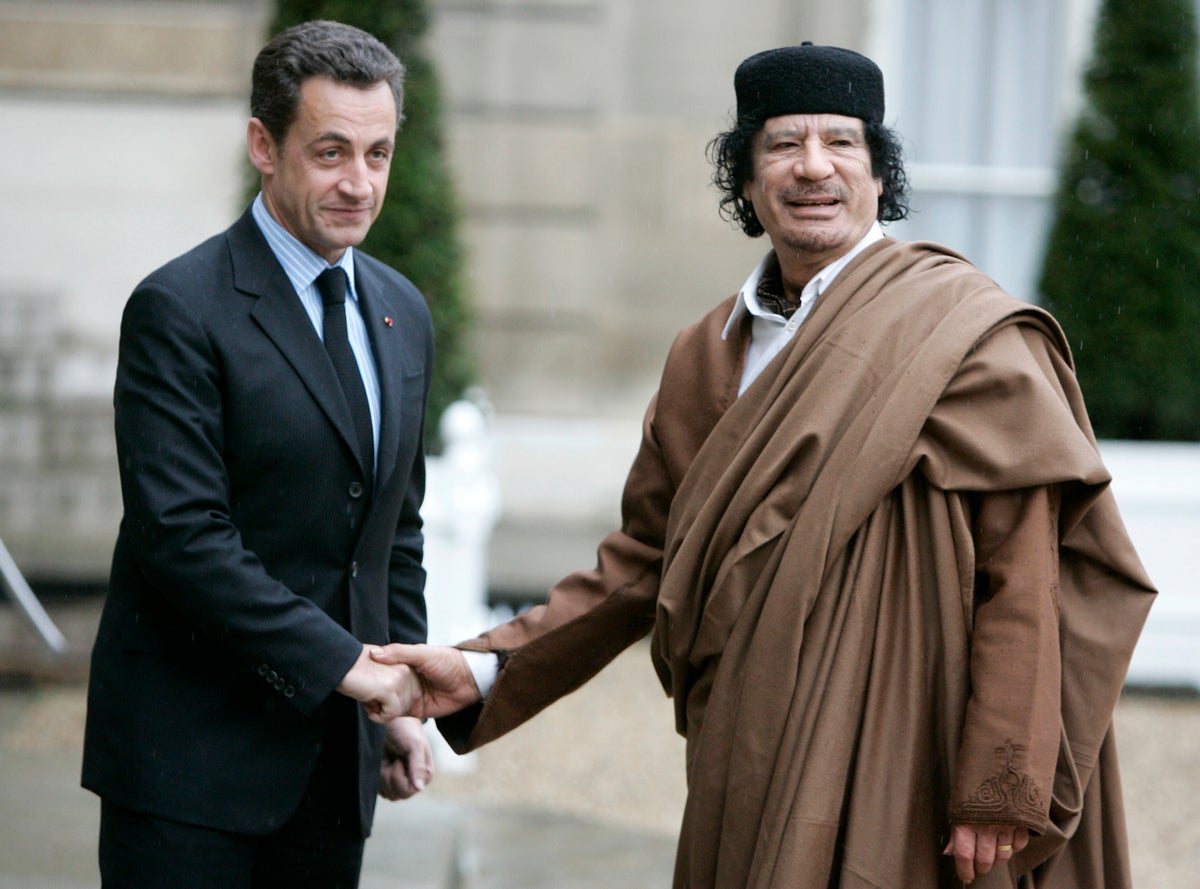
French investigative magistrates on Friday ordered former president Nicolas Sarkozy and 12 others to go on trial on charges that his 2007 presidential campaign received millions in illegal financing from the government of late Libyan leader Moammar Gadhafi.
The national financial prosecutor, Jean-François Bohnert, announced that the decade-long investigation has been formally closed. The trial will run from January to April 2025, the statement said.
The case is the biggest and most shocking of multiple corruption investigations involving Sarkozy. He has been convicted in two others. He denies wrongdoing in all cases.
In the Libya case, he is charged with illegal campaign financing, embezzling, passive corruption and related counts.
Sarkozy has been under investigation in the Libya case since 2013. Investigators examined claims that Gadhafi’s government secretly gave Sarkozy 50 million euros for his winning 2007 campaign. The sum would be more than double the legal campaign funding limit at the time and would violate French rules against foreign campaign financing.
The investigation gained traction when French-Lebanese businessman Ziad Takieddine told news site Mediapart in 2016 that he had delivered suitcases from Libya containing 5 million euros ($6.2 million) in cash to Sarkozy and his former chief of staff. Takieddine later reversed course and Sarkozy sought to have the investigation closed.
After becoming president in 2007, Sarkozy welcomed Gadhafi to France with high honors later that year. Sarkozy then put France at the forefront of NATO-led airstrikes that helped rebel fighters topple Gadhafi’s government in 2011.
In an unrelated case, Sarkozy was sentenced to a year of house arrest for illegal campaign financing of his unsuccessful 2012 reelection bid. He is free while the case is pending appeal.
He also was found guilty of corruption and influence peddling in another case and sentenced to a year of house arrest in an appeals trial in May this year. He took the case to France's highest court, which suspended the sentence.







